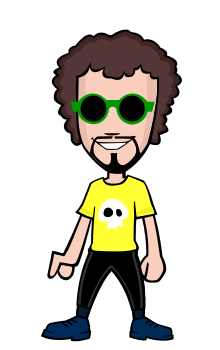The word "modern" is used in many different contexts in many different ways. For some people modernisation was synonymous with industrialisation. For others the modern world was the world of modern art and music. If we listen to the news we also hear people frequently talking about the need for developing societies to modernise, refering to things like an increasing respect for human rights, democracy and the privatisation of the economy.
There is another aspect of modernity, which is often overlooked but which is equally revolutionary. This concerns the foundations of knowledge. Before the emergence of a more modern sensibility knowledge wasn't much of a problem. Nobody bothered to write books about the foundations of knowledge. The assumption was that they were obvious. For medieval Europeans the great edifice of human learning rested upon the very solid foundation of revealed Truth.
In practice, what this meant was that certain books were authoritative and unquestionable sources of knowledge, and if you wanted to come up with some new idea you had to explain how it agreed with the ideas in those sacred texts, and if you couldn't do that you risked being arrested by the thought police and then being thrown out of the Church - what they called "excommunication" - which would mean the loss of your job and income, and so you would die a lonely, impoverished and miserable man.
In 1632 a book was published by the Frenchman Rene Descartes that undermined these older ideas about the foundations of knowledge. It was a brave book because at the same time as Descartes was writing in Catholic France Galileo was being brought before the Catholic court in Italy to force him to publicly deny the outrageous theory that the sun, not the earth, was at the centre of the universe. It was also the first of the huge number of books about knowledge that have been written in our epoch - and the first book in a whole new branch of learning: epistemology.
In his own quiet way Descartes helped to foster the understanding that human knowledge cannot rest upon something external to it, like the word of God. Wherever ideas come from, we have to interpret them and fit them together with the other ideas we have to ensure that everything makes as much sense as possible. The true ideas we get from the bible or from Plato are not true simply because they came from the mouths or the pens of the apostles or Plato, rather they are true because they fit into the best arguments human minds can construct.
These were heretical thoughts. They undermined the idea of an authority in the sphere of human knowledge, and without that idea there was no justification for the medieval thought police of the Catholic church. They also helped to give greater credibility to the emerging science of Copernicus and Galileo.
Arguably, they also helped pave the way for modern democracy because to be consistently Cartesian is to believe that no group of people have some privileged access to the truth - everyone is in an equally good position to criticise received wisdom and so everyone should have an equal right to have their voice heard. The attack on authority also weakened the justification for the practice of sacrificing the individual for the sake of the greater good of society, and this helped clear the ground for the modern culture of the individual.
Descartes broke with the Christian tradition in depicting the world of human cognition as something quite independent. It observes things in the world and receives stimuli, but the human mind itself provides the criteria for deciding how to make sense of those things.
There is some continuity, though. Cartesianism shares with both the Christian and the Platonic traditions a claim to unversality. Both Plato and the Christian Churches believed that their ideas were valid for everyone. Plato didn't think he was just summing up what was true for the Greeks, and the Christian churches didn't think they were promoting a religion that was just for disaffected Jews, or Greeks or Ethiopians or Romans. Each ideology was proclaimed to be universal.
Descartes made the same claim about his own ideas. In fact, he made an even stronger claim to universality. It doesn't matter if you were not born with all the innate ideas Plato talked about, and it doesn't matter if you don't have the faith that theology presupposes. All you need is to be able to think and to take an intellectual step back and look critically at the received wisdom you have inherited. The assumption is that everyone who does this will end up agreeing perfectly both with Descartes and with each other.
In a nutshell, as far as knowledge is concerned, the modern world began in 1632 when a new cognitive self-understanding came on the scene - an acute awareness that all our knowledge is a human artefact, combined with an optimism that if we can only free ourselves from our local intellectual prejudices we will all agree on a new and perfectly rational way of looking at the world. We are the intellectual heirs of Descartes whenever we strongly believe that there must be one ultimate theory of man, the universe and everything; that there is really only one way of being rational; and whenever we believe that if only people could drop the silly ideas of their peculiar traditions we would all have a great time together and there would be universal peace.



